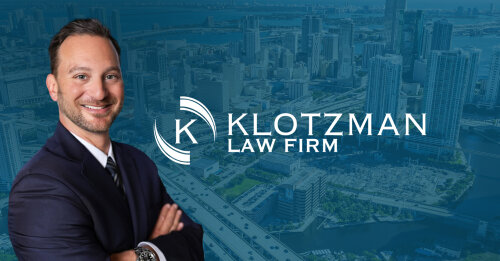Best Property Damage Lawyers in New York
Share your needs with us, get contacted by law firms.
Free. Takes 2 min.
Or refine your search by selecting a city:
List of the best lawyers in New York, United States
United States Property Damage Legal Questions answered by Lawyers
Browse our 1 legal question about Property Damage in United States and read the lawyer answers, or ask your own questions for free.
- MOVING COMPANY DAMAGED RENTAL HOME, FURNITURE AND NEW HOME
- MOVING COMPANY DAMAGED WALLS AND FURNITURE IN TWO HOUSES, THEY DIDNT USED PACKING BLANKETS OR MOVING EQUIPMENT, I FILED A DAMAGE CLAIM MID MOVE, AND RELIEVED THE WORKERS EARLY FROM SCHEDULED TIME TOOK PICS AND SUBMITTED TO THE MOVING COMPANY, NOW THE MOVING COMPANY IS INSINUATING WE CAUSED THE DAMAGE,... Read more →
-
Lawyer answer by T & A Legal
Hello, sorry about the damage to your walls and furniture. The moving company may be liable for a breach of contract or negligence. However, their liability will be determined largely by the contract between you and the moving company.Please note...
Read full answer
About Property Damage Law in New York, United States
Property damage law in New York deals with situations where real or personal property is harmed, destroyed, or lost due to someone’s actions or negligence. This area of law covers incidents ranging from car accidents and vandalism to natural disasters impacting homes or businesses. The primary goal of property damage law is to restore the property owner to the position they were in prior to the damage, usually through financial compensation. Courts, insurance companies, and sometimes government agencies may become involved in resolving property damage claims, depending on the nature of the incident.
Why You May Need a Lawyer
People may seek legal assistance regarding property damage for several reasons. Here are some notable situations:
- You are in a dispute with an insurance company over coverage, claim denial, or the amount of compensation for your damaged property.
- Your property was damaged as a result of someone else’s negligence, recklessness, or intentional act.
- You are being held responsible for damage to someone else's property and need to defend yourself.
- A landlord-tenant conflict arises concerning damage within a rental property.
- Your home or business was affected by a natural disaster and the insurance settlement is insufficient.
- There is a construction defect that caused significant damage to your property.
- You are a business owner facing property damage claims from customers or other businesses.
In many cases, a lawyer can help clarify your rights, negotiate with insurance companies, gather evidence, and represent you in court should litigation be necessary.
Local Laws Overview
New York has specific statutes and legal principles governing property damage. These are some of the key aspects to consider:
- Statute of limitations: In most cases, you have three years from the date the property was damaged to file a lawsuit. Acting quickly is essential, as missing this deadline can forfeit your right to compensation.
- Comparative negligence: New York follows a pure comparative negligence rule. If you are partially at fault for the damage, your compensation may be reduced in proportion to your share of fault.
- Insurance regulations: New York law regulates how insurance companies must handle property damage claims, including timelines for responses and good faith requirements.
- Types of damages: Eligible compensation can include the cost to repair or replace property, loss of use, and in some cases, diminished value or emotional distress, depending on circumstances.
- Vandalism and intentional harm: Civil and criminal laws apply if property is damaged intentionally, with the possibility for punitive damages or criminal restitution.
- Municipal claims: If the government is responsible for the property damage, there are special notice requirements and shorter deadlines for filing a claim.
Navigating these laws often requires professional help to ensure all rules and procedures are followed correctly.
Frequently Asked Questions
What should I do immediately after discovering property damage?
Document the damage with photos and video. Notify your insurance company and file a police report if a crime is involved. Keep receipts related to repairs or temporary fixes.
How long do I have to pursue a property damage claim in New York?
Generally, you have three years from the date of the incident to file a lawsuit, but certain claims against government entities may have shorter deadlines.
Will my insurance policy cover all types of property damage?
Not necessarily. Coverage depends on your specific policy and may exclude events such as floods, earthquakes, or intentional acts. Review your policy or consult an attorney for clarity.
Can I sue someone personally for property damage?
Yes, if another party’s negligence or intentional act caused the damage, you may pursue a civil claim against them.
What happens if both parties are partially at fault?
New York follows pure comparative negligence, so compensation will be reduced by your percentage of responsibility.
How are damages calculated?
Damages typically include the cost of repair or replacement, loss of use during repair, and possibly loss in value. Actual calculations can vary case by case.
What if my claim is denied by my insurance company?
You may appeal the decision, submit additional evidence, or seek legal assistance to negotiate or litigate the dispute.
Do I need to hire a lawyer for minor property damage?
For minor cases, you may handle the situation through insurance or small claims court. More complex situations, particularly those involving significant loss or legal disputes, may require professional help.
Can landlords and tenants both be liable for property damage?
Yes, liability depends on the lease agreement and the circumstances of the damage. Landlords typically cover structural issues while tenants are usually responsible for damage caused by their actions.
What is the difference between criminal and civil property damage?
Criminal property damage involves the state prosecuting an individual or party for intentionally damaging property, which can result in fines or jail time. Civil property damage refers to one party seeking financial compensation from another through a lawsuit.
Additional Resources
Here are organizations and governmental bodies that provide information or support for property damage issues in New York:
- New York State Department of Financial Services - Oversees insurance providers and consumer complaints
- New York State Attorney General’s Office - Consumer protection and complaint services
- Local Small Claims Courts - For resolving lower-value disputes
- Official city or county websites for filing municipal claims
- Legal Aid Society or local bar associations for free or low-cost legal consultations
- Nonprofit organizations specializing in disaster recovery
Next Steps
If you are facing a property damage issue, consider the following steps:
- Immediately document the damage and collect all relevant evidence.
- Notify your insurance provider as soon as possible and follow their claims process.
- Consult the resources provided for guidance or self-help options if the situation is minor.
- If your case involves significant financial loss, liability disputes, or difficulties with your insurer, reach out to a qualified attorney who specializes in property damage law in New York.
- Prepare any documents, photographs, correspondence, or receipts that may support your claim or legal case.
Acting promptly and staying organized will protect your interests and maximize your chances of a favorable outcome.
Lawzana helps you find the best lawyers and law firms in New York through a curated and pre-screened list of qualified legal professionals. Our platform offers rankings and detailed profiles of attorneys and law firms, allowing you to compare based on practice areas, including Property Damage, experience, and client feedback.
Each profile includes a description of the firm's areas of practice, client reviews, team members and partners, year of establishment, spoken languages, office locations, contact information, social media presence, and any published articles or resources. Most firms on our platform speak English and are experienced in both local and international legal matters.
Get a quote from top-rated law firms in New York, United States — quickly, securely, and without unnecessary hassle.
Disclaimer:
The information provided on this page is for general informational purposes only and does not constitute legal advice. While we strive to ensure the accuracy and relevance of the content, legal information may change over time, and interpretations of the law can vary. You should always consult with a qualified legal professional for advice specific to your situation.
We disclaim all liability for actions taken or not taken based on the content of this page. If you believe any information is incorrect or outdated, please contact us, and we will review and update it where appropriate.
Browse property damage law firms by city in New York
Refine your search by selecting a city.

















